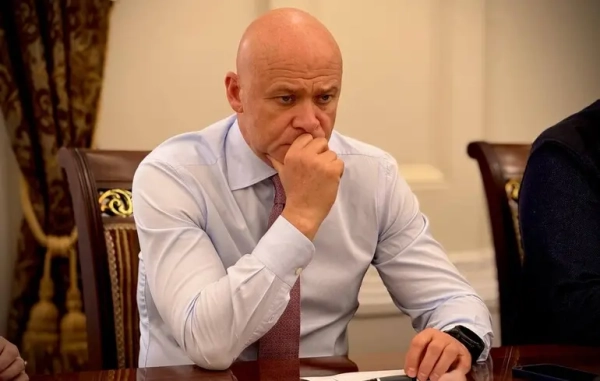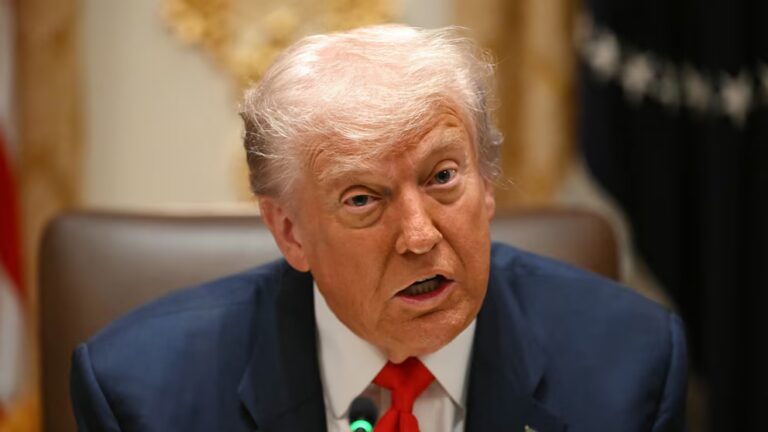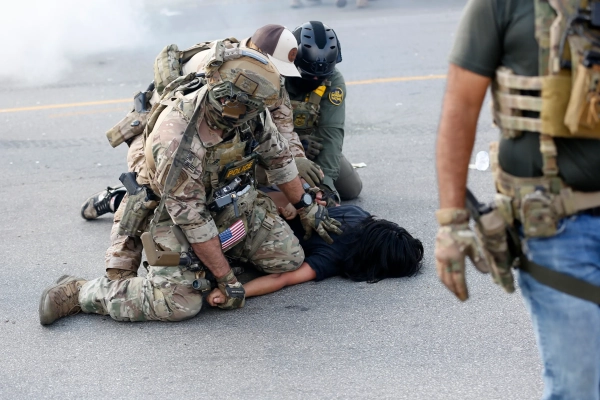On the 60th anniversary of President John F. Kennedy's famous moonshot speech, President Joe Biden on Monday outlined a new "American Moonshot" aimed at eradicating cancer "as we know it."
"President Kennedy set a goal to win the space race against Russia and advance science and technology for all humanity," Biden said during a speech at the John F. Kennedy Library and Museum in Boston. "And when he said that goal, he established a national purpose that could rally the American people and the common cause, and he succeeded. Now in our time, on the 60th anniversary of his clarion call, we face another inflection point."
After being introduced by Kennedy's daughter, U.S. Ambassador to Australia Caroline Kennedy, Biden pointed to the parallels between his efforts and those of JFK, who, at the time, declared the America's objective to put a man on the moon — noting that both plans were unprecedented for their times.
"I believe … the same national purpose will serve to organize and measure the best of our energies and skills to end cancer as we know it. And even cure cancers once and for all," he said.
The cause is a personal one for Biden, who launched the moonshot originally as vice president just months after his son, Beau, died from glioblastoma, a rare and aggressive form of brain cancer, in 2015.
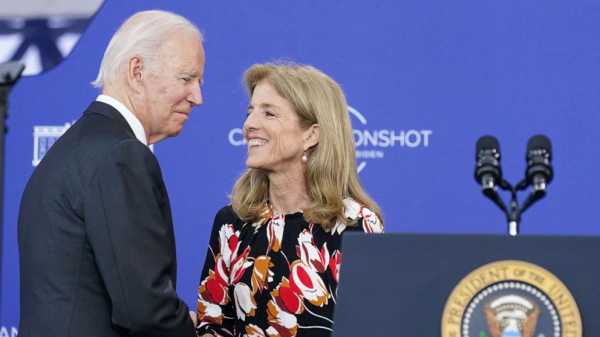
President Joe Biden is greeted by President John F. Kennedy’s daughter Caroline Kennedy as he arrives to deliver a speech on his “Cancer Moonshot” initiative at the John F. Kennedy Library and Museum in Boston, Sept. 12, 2022.Kevin Lamarque/Reuters
MORE: Cancers in adults below 50 have 'dramatically increased': Report
Biden reiterated the importance of this cancer moonshot to him, saying it was one of the reasons he ran for president in 2020.
"As president of the United States Senate, I presided over the overwhelming bipartisan vote and watched my friend Mitch McConnell name the cancer provisions in that bill after my son Beau who had lost his life to that disease just months earlier. And when we left office, Jill and I knew we had to keep going through, keep it up. So, we initiated the Biden cancer initiative. We focused on turning the moonshot into a movement, not just a shot, a movement," Biden said.
In the years since President Richard Nixon signed the National Cancer Act in 1971, "enormous progress" has been made in the nation's fight against cancer, Biden said, adding that progress has increased at a faster pace in recent years, with the death rate due to cancer falling more than 25% over the last 25 years. Cancer, however, remains the second-leading cause of death in the U.S. after heart disease.
Earlier this year, Biden relaunched the cancer moonshot initiative, unveiling his goals of cutting cancer deaths in half in the next 25 years, and on Monday he pointed to how technology can be used to further efforts to find a cure.
"Today, I'm setting a long term goal for the cancer moonshot to rally America, an ingenuity that we can engage like we did to reach the moon that actually cures cancers — not all cancer — cancer — cures cancer once and for all. " Biden said.
Biden also introduced Dr. Renee Wegrzyn — his pick for the first Director of the Advanced Research Projects Agency for Health (ARPA-H), a program Biden campaigned on creating to help drive research to cure diseases like cancer, Alzheimer's and Diabetes, and one he views as critical to the success of the moonshot.
"Scientists are exploring whether mRNA vaccine technology that brought us safe and effective COVID 19 vaccines could be used to stop cancer cells when they first arrive to target the right treatments," Biden said.
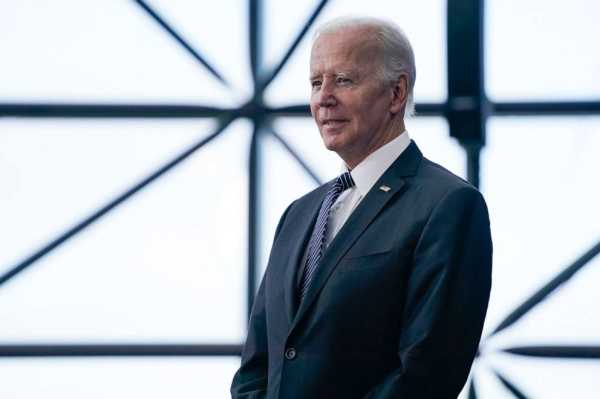
President Joe Biden listens as Ambassador Caroline Kennedy speaks before Biden about the cancer moonshot initiative at the John F. Kennedy Library and Museum in Boston, Sept. 12, 2022.Evan Vucci/AP
Looking ahead, Biden asked the audience to imagine what was possible.
"Imagine the possibilities. Vaccines that could prevent cancer, like there is for HPV. Imagine molecular zip codes that could deliver drugs and gene therapy precisely to the right tissues. Imagine simple blood test during an annual physical that can detect cancer early with a chance of cure best. Imagine getting a simple shot instead of grueling chemo, or getting a pill follicle pharmacy instead of invasive treatments and long hospital stays," he said.
But Biden warned that the federal effort and investments would not be enough to cure cancer.
"We need everyone to get the game. That's why I'm also calling on the science and medical communities to bring the boldest thinking to this fight. I'm calling on the private sector to develop and test new treatments. Make drugs more affordable, share more data, and knowledge that can inform the public and benefit every company's research," he said. "And I'm respectfully calling on people living with cancer and caregivers and families to keep sharing their experience and pushing for progress," Biden said, urging them to share their ideas with the administration as well."
Earlier, the White House said Biden would not be seeking additional funding from Congress for what is bound to be an costly effort.
Sourse: abcnews.go.com
